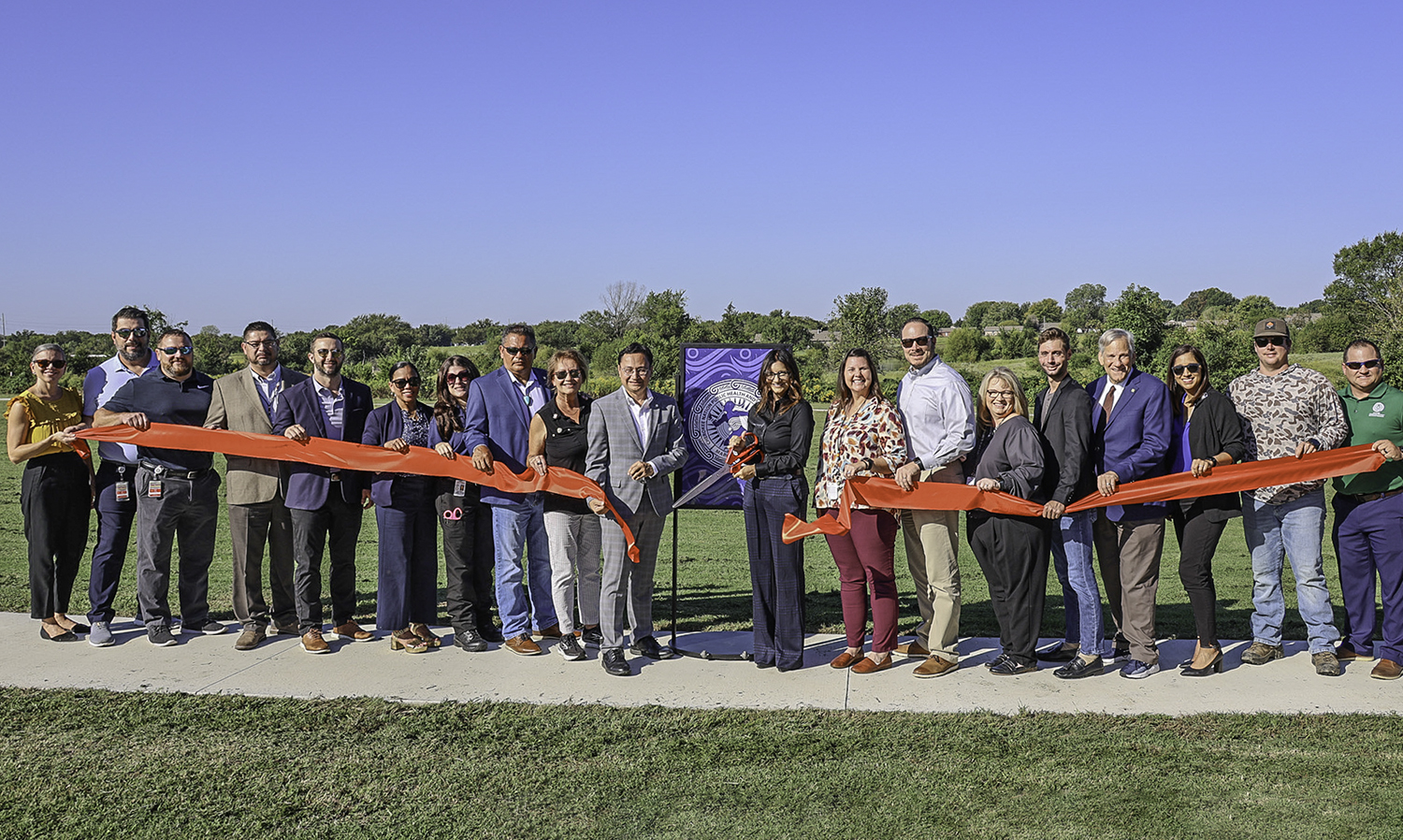MUSKOGEE, Okla. — Cherokee Nation officials gathered to cut the ribbon on a walking trail at the tribe’s Three Rivers Health Center in Muskogee as part of the Cherokee Nation Public Health and Wellness Fund Act signed by Principal Chief Chuck Hoskin Jr. in 2021.
The paved trail stretches nearly half a mile on the Three Rivers Health Center campus and was an investment of over $330,000.
“The Public Health and Wellness Fund Act is one of our most impactful efforts to ensure the Cherokee people have access to opportunities that can keep them healthy in their daily lives,” said Cherokee Nation Principal Chief Chuck Hoskin Jr. “This project along with many others is part of a bigger strategy to achieve a higher level of wellness in our communities.”
Cherokee Nation Health Services sets aside 7% of third-party revenue and dedicates the funding to mental and physical wellness efforts through the Public Health and Wellness Fund Act.
“This walking trail will benefit not only the individuals and families who visit the health center, but the healthcare teams serving our Cherokee people,” said Deputy Chief Bryan Warner. “By creating spaces in our communities that increase access to physical wellness and improve mental wellbeing, we are prioritizing a holistic approach to healthcare.”
Cherokee Nation also plans to construct walking trails at a number of other tribal health facilities in the reservation.
“Seeing this project come to fruition makes me proud that the Cherokee Nation is being proactive with health and wellness efforts that will impact the quality of life for our people for generations to come,” said District 4 Tribal Councilor Mike Dobbins.
In October 2021, Chief Hoskin signed an executive order creating the Cherokee Nation Task Force on Physical Wellness to assess the availability and effectiveness of existing physical wellness programs for Cherokee citizens across the tribe’s reservation and to identify new programs or facility needs to address gaps that may exist.
Cherokee Nation Public Health conducted a study that same year with a focus on increasing access to physical activity in the Cherokee Nation Reservation. The tribe is also building wellness centers like the Mary L. (Holland) Carson Wellness Center in Stilwell, which is currently under construction, and a wellness center and walking trail being built as part of the tribe’s new Salina Health Center, which is also under construction.
The tribe will eventually replace the Male Seminary Recreation Center in Tahlequah and will continue to find other opportunities across the reservation to make physical wellness programs available.

